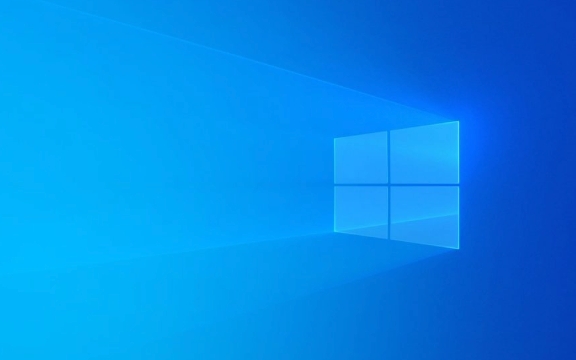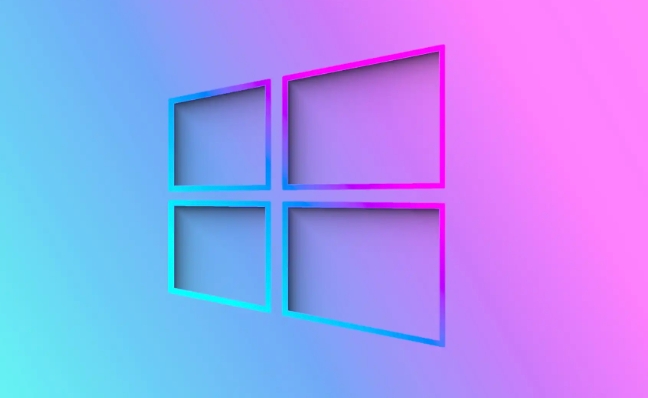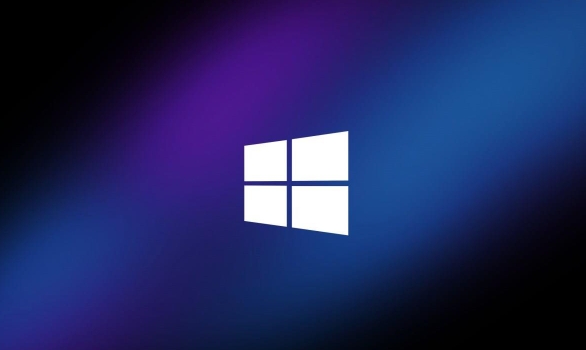What is a VPN and Should I Be Using One?
Jul 29, 2025 am 03:48 AMA VPN encrypts your internet traffic, hides your IP address, bypasses geographic restrictions, and protects your privacy on public Wi-Fi by routing your connection through a secure tunnel. 2. It’s most beneficial for remote workers, frequent travelers, privacy-conscious users, and those in regions with internet censorship, but may be unnecessary for users on secure home networks with no privacy concerns. 3. Common misconceptions include believing VPNs guarantee complete anonymity, that all VPNs are secure (especially free ones), and that they improve internet speed—when they often slightly reduce it. 4. You should use a reputable paid VPN if you regularly use public Wi-Fi, want to hide activity from your ISP, access region-locked content, or handle sensitive data remotely; otherwise, it may not be needed, especially if you’re using an untrusted free service. Ultimately, a VPN is a valuable but limited tool for specific situations, not a constant necessity for all users, and should be used wisely based on individual needs and risks.

A VPN (Virtual Private Network) is a service that creates a secure, encrypted connection between your device and the internet. It routes your traffic through a remote server, hiding your real IP address and protecting your data from prying eyes—especially on public Wi-Fi or untrusted networks.

So, should you be using one? It depends on your needs, but here’s a breakdown to help you decide.
1. What Does a VPN Actually Do?
A VPN doesn’t make you completely anonymous or invincible online, but it does offer several key benefits:

- Encrypts your internet traffic – Prevents hackers, ISPs, or anyone on the same network from seeing what you’re doing online.
- Hides your IP address – Makes it appear as if you’re browsing from a different location (the VPN server’s location).
- Bypasses geographic restrictions – Useful for accessing region-locked content on streaming platforms or websites.
- Protects privacy on public Wi-Fi – Essential when using coffee shop, airport, or hotel networks.
Think of it like a private tunnel between your device and the internet—no one can peek inside.
2. Who Should Use a VPN?
Not everyone needs one all the time, but these people benefit the most:

- Remote workers or those using public Wi-Fi – If you connect to work email or cloud services on the go, a VPN adds a layer of security.
- Frequent travelers – Helps access home-region content and stay secure on unfamiliar networks.
- Privacy-conscious users – If you don’t want your ISP tracking your browsing habits, a good VPN can help.
- People in restrictive regions – In countries with heavy internet censorship, a VPN can provide access to blocked sites.
However, if you're mostly browsing at home on a secure network and not doing anything sensitive, a VPN might be overkill.
3. Common Misconceptions About VPNs
Before jumping in, clear up a few myths:
- ? A VPN makes you completely anonymous – Not true. Websites can still track you via cookies, browser fingerprinting, or login accounts.
- ? All VPNs are equally secure – Free VPNs often log your data or sell it to third parties. Some even contain malware.
- ? VPNs speed up your internet – Usually, they slow it down slightly due to encryption and server distance.
Always choose a reputable, paid provider with a no-logs policy (like Mullvad, ProtonVPN, or IVPN) over sketchy free options.
4. Should You Use One? Quick Checklist
? Use a VPN if you:
- Regularly use public Wi-Fi
- Want to hide browsing activity from your ISP
- Access region-restricted content
- Work remotely with sensitive data
? You might not need one if:
- You only browse securely at home
- You’re not concerned about location masking
- You’re using a free or untrusted VPN (better to go without)
And remember: a VPN isn’t antivirus software or a magic privacy shield—it’s just one tool in your digital safety toolkit.
Bottom line: A VPN is worth using if you value privacy, travel often, or connect to sketchy networks. Just pick a trustworthy provider and understand its limits. For most average users, having one active during risky connections (like public Wi-Fi) is a smart move—no need to leave it on 24/7 unless you have a specific reason.
Basically, it's like wearing a seatbelt: you don't always need it, but it’s a good idea when conditions get unpredictable.
The above is the detailed content of What is a VPN and Should I Be Using One?. For more information, please follow other related articles on the PHP Chinese website!

Hot AI Tools

Undress AI Tool
Undress images for free

Undresser.AI Undress
AI-powered app for creating realistic nude photos

AI Clothes Remover
Online AI tool for removing clothes from photos.

Clothoff.io
AI clothes remover

Video Face Swap
Swap faces in any video effortlessly with our completely free AI face swap tool!

Hot Article

Hot Tools

Notepad++7.3.1
Easy-to-use and free code editor

SublimeText3 Chinese version
Chinese version, very easy to use

Zend Studio 13.0.1
Powerful PHP integrated development environment

Dreamweaver CS6
Visual web development tools

SublimeText3 Mac version
God-level code editing software (SublimeText3)

Hot Topics
 How to set up Win10 firewall whitelist? Win10 plus firewall whitelist
Jul 14, 2023 pm 03:18 PM
How to set up Win10 firewall whitelist? Win10 plus firewall whitelist
Jul 14, 2023 pm 03:18 PM
The built-in firewall function of win10 can block the attacks of some malicious programs for us, but occasionally it may be blocked by the firewall and prevent the program from being installed normally. If we can understand the security of this software and the importance of installation, then we can allow the installation by adding a whitelist to the firewall. 1. Use the win key to open the win10 system menu window, and click on the left side of the menu window to open the "Settings" dialog box. 2. In the Windows Settings dialog box that opens, you can look for the "Update & Security" item and click to open it. 3. After entering the upgrade and security policy page, click the "Windows Security Manager" sub-menu in the left toolbar. 4. Then in the specific content on the right
 How to install Zeek Internet Security Monitor 12 on Debian
Feb 19, 2024 pm 01:54 PM
How to install Zeek Internet Security Monitor 12 on Debian
Feb 19, 2024 pm 01:54 PM
Bro has been renamed Zeek and is a powerful open source network security monitor. It is not only an IDS, but also a network analysis framework. Zeek provides you with real-time insights into network operations to help detect and prevent security incidents. Its benefits include detailed network traffic logging, event-driven analysis and the ability to detect a wide range of network anomalies and security events. Install Zeek Internet Security Monitor 12 Bookworm on Debian Step 1. Before installing Zeek, you need to update and refresh your Debian repository by executing the following command: sudoaptupdatesudoaptupgrade This command will update the package list for upgrades and new package installations. Step 2. Install ZeekN on Debian
 Master network security and penetration testing in Go
Nov 30, 2023 am 10:16 AM
Master network security and penetration testing in Go
Nov 30, 2023 am 10:16 AM
With the development of the Internet, network security has become an urgent issue. For technical personnel engaged in network security work, it is undoubtedly necessary to master an efficient, stable, and secure programming language. Among them, Go language has become the first choice of many network security practitioners. Go language, referred to as Golang, is an open source programming language created by Google. The language has outstanding features such as high efficiency, high concurrency, high reliability and high security, so it is widely used in network security and penetration testing.
 Roborock sweeping robot passed Rheinland dual certification, leading the industry in corner cleaning and sterilization
Mar 19, 2024 am 10:30 AM
Roborock sweeping robot passed Rheinland dual certification, leading the industry in corner cleaning and sterilization
Mar 19, 2024 am 10:30 AM
Recently, TUV Rheinland Greater China ("TUV Rheinland"), an internationally renowned third-party testing, inspection and certification agency, issued important network security and privacy protection certifications to three sweeping robots P10Pro, P10S and P10SPro owned by Roborock Technology. certificate, as well as the "Efficient Corner Cleaning" China-mark certification. At the same time, the agency also issued self-cleaning and sterilization performance test reports for sweeping robots and floor washing machines A20 and A20Pro, providing an authoritative purchasing reference for consumers in the market. As network security is increasingly valued, TUV Rheinland has implemented strict network security and privacy protection for Roborock sweeping robots in accordance with ETSIEN303645 standards.
 Artificial Intelligence in Cybersecurity: Current Issues and Future Directions
Mar 01, 2024 pm 08:19 PM
Artificial Intelligence in Cybersecurity: Current Issues and Future Directions
Mar 01, 2024 pm 08:19 PM
Artificial intelligence (AI) has revolutionized every field, and cybersecurity is no exception. As our reliance on technology continues to increase, so do the threats to our digital infrastructure. Artificial intelligence (AI) has revolutionized the field of cybersecurity, providing advanced capabilities for threat detection, incident response, and risk assessment. However, there are some difficulties with using artificial intelligence in cybersecurity. This article will delve into the current status of artificial intelligence in cybersecurity and explore future directions. The role of artificial intelligence in cybersecurity Governments, businesses and individuals are facing increasingly severe cybersecurity challenges. As cyber threats become more sophisticated, the need for advanced security protection measures continues to increase. Artificial intelligence (AI) relies on its unique method to identify, prevent
 Ten methods in AI risk discovery
Apr 26, 2024 pm 05:25 PM
Ten methods in AI risk discovery
Apr 26, 2024 pm 05:25 PM
Beyond chatbots or personalized recommendations, AI’s powerful ability to predict and eliminate risks is gaining momentum in organizations. As massive amounts of data proliferate and regulations tighten, traditional risk assessment tools are struggling under the pressure. Artificial intelligence technology can quickly analyze and supervise the collection of large amounts of data, allowing risk assessment tools to be improved under compression. By using technologies such as machine learning and deep learning, AI can identify and predict potential risks and provide timely recommendations. Against this backdrop, leveraging AI’s risk management capabilities can ensure compliance with changing regulations and proactively respond to unforeseen threats. Leveraging AI to tackle the complexities of risk management may seem alarming, but for those passionate about staying on top in the digital race
 How do C++ functions implement network security in network programming?
Apr 28, 2024 am 09:06 AM
How do C++ functions implement network security in network programming?
Apr 28, 2024 am 09:06 AM
C++ functions can achieve network security in network programming. Methods include: 1. Using encryption algorithms (openssl) to encrypt communication; 2. Using digital signatures (cryptopp) to verify data integrity and sender identity; 3. Defending against cross-site scripting attacks ( htmlcxx) to filter and sanitize user input.
 The U.S. government recommends that developers stop using C/C++ and switch to memory-safe programming languages
Feb 29, 2024 pm 03:19 PM
The U.S. government recommends that developers stop using C/C++ and switch to memory-safe programming languages
Feb 29, 2024 pm 03:19 PM
According to news from this site on February 29, the U.S. government recently released a cybersecurity report calling on developers to stop using programming languages ??that are prone to memory safety vulnerabilities, such as C and C++, and instead use memory-safe programming languages ??for development. The report was released by the Office of the U.S. Cyberspace Director (ONCD) to implement U.S. President Biden’s cybersecurity strategy with the goal of “protecting the cornerstone of cyberspace.” Memory safety means that a program can effectively avoid potential errors and vulnerabilities when accessing memory, such as buffer overflows and dangling pointers. Java is considered a memory-safe programming language because of its runtime error detection capabilities. In contrast, C and C++ allow direct access to memory addresses and lack bounds checking, which makes it






